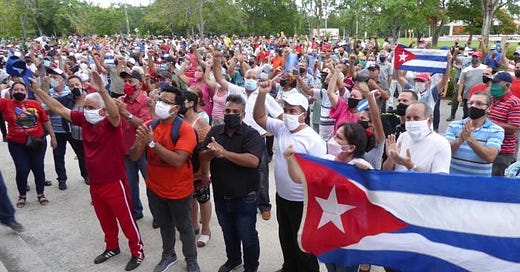The US unconventional war against Cuba
The revolutionary people quickly retake the streets of Cuba
All is normal and tranquil in Cuba, and it has been so since Monday, July 12, notwithstanding the extraordinary dissemination of fake news. On the Internet, a portrait has been disseminated of a government that is aloof from the people and unable to manage the economy or the pandemic; and a popular insurrection against the government. False images have been disseminated, including photos of Argentinians celebrating the recent victory in the football Cup of America, a protest in Alexandria, Egypt, a previous Cuban demonstration demanding that the U.S. government end the blockade of Cuba, and a street demonstration in Cuba on July 11 in support of the government; all presented as Cubans protesting the government on July 11. It is a false portrait, constructed on a foundation of decades of lies and distortions about Cuba.
But the reality is something other. On July 11, responding to a media campaign organized in the United States, political operatives organized small demon…


